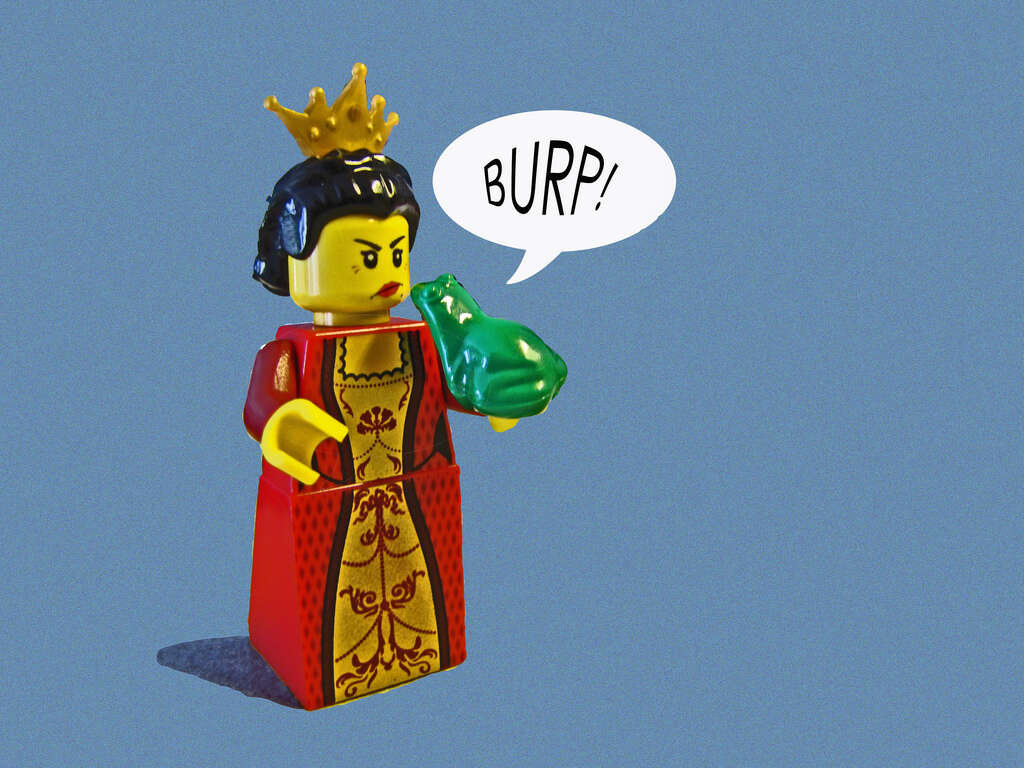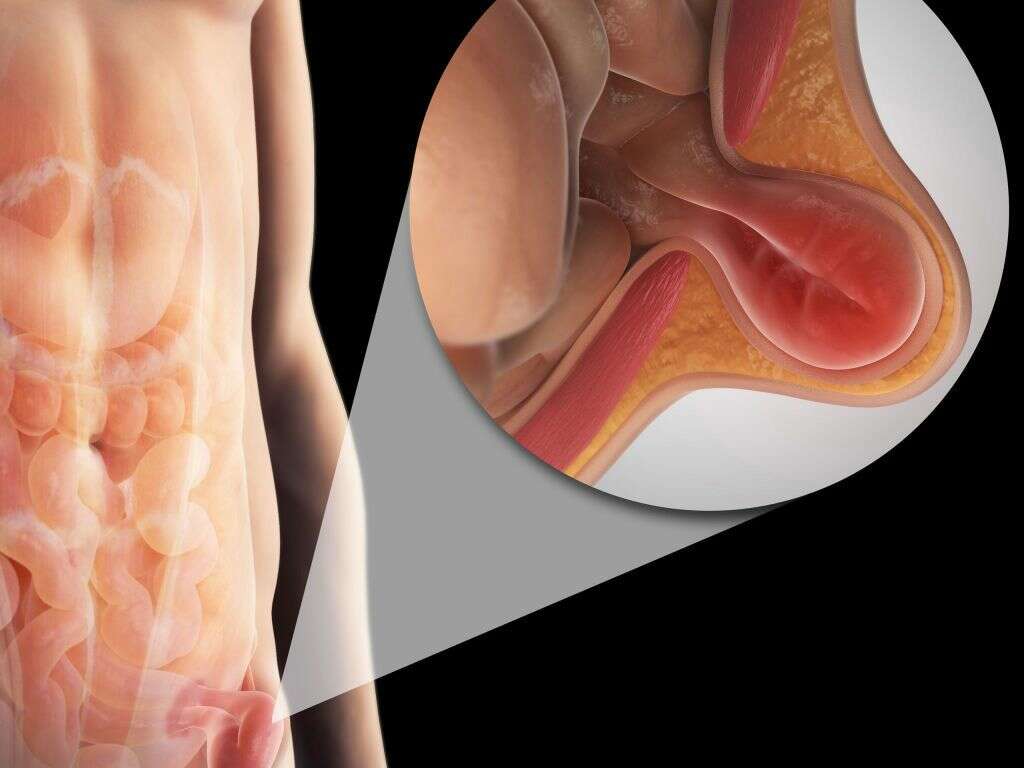10 Hiatal Hernia Symptoms
The word hiatal refers to an opening in the diaphragm. The diaphragm is the muscular wall that functions to separate the chest cavity from the abdomen. This means that the organs in the chest cavity and the abdominal cavity are kept separated. When you put the words together, hiatal hernia is basically a condition where the stomach is pushed into the chest through the opening in the diaphragm.
Generally, there are two main types of hiatal hernias: paraesophageal hernia and sliding hernia. The commonest type of hernia is the sliding hiatal hernia where part of the stomach and junction where the esophagus joins the stomach slides up through the hole into the chest.
Most patients diagnosed with a Hiatal Hernia are asymptomatic (more than 90%). Hiatal Hernias may predispose or worsen existing reflux symptoms. Therefore, all of the symptoms in this article are complications related to this condition and they are not caused by the hernia itself.

Symptom #1: Heartburn
Heartburn can be described as a burning sensation in your chest, located behind your breastbone. It can range from a feeling of discomfort to pain and worsens when you lie down or bend over. Occasional heartburn is common and can be managed through lifestyle changes and taking over the counter medications. The burning sensation usually starts after eating and occurs more commonly at night.
If heartburn occurs too frequently or affects you daily routines, it can be a symptom of a more serious underlying issue that may require medical attention. If you have other symptoms such as difficulty swallowing, persistent nausea or vomiting, weight loss due to difficulty eating or poor appetite, you should make an appointment with your doctor.

Symptom #2: Bad Taste in the Mouth
This can occur since stomach contents regurgitate easier in individuals with hiatal hernia compared to those without. When the stomach contents reflux and reaches the back of the throat, you will often experience a sour or bitter taste in your mouth.
Try gargling more frequently to get rid of the bad taste. It can be a frustrating symptom for some patients as it often interferes with the taste of food.

Symptom #3: Belching / Burping
While it many be normal for people to belch or burp after a meal or consumption of a carbonated beverage, those suffering from hiatal hernia may belch frequently without cause.
Individuals with hiatal hernia also tend to belch or hiccup after having a meal, this occurs as the upper part of the stomach is pushed up through the diaphragm. Belching that is too severe may cause pain in the esophagus and upper part of the stomach.

Symptom #4: Sore Throat
A sore throat can occur especially when the stomach contents that has a high content of stomach acids move up the esophagus. The acid from the stomach contents injures the throat and possibly the adenoids as well, and results in a croaky voice. It may not subside until there is enough saliva production that can help neutralize the acidity.
In chronic and severe cases, the acids that comes up through the esophagus into the oral cavity can result in permanent damage of the throat and vocal cords. This results in a permanent voice change, soreness in the throat, bitter taste in the mouth, burns the tongue, and even damage the enamel of the teeth. The pain in your throat may worsen with swallowing.

Symptom #5: Intermittent Bleeding
Some patients with a Hiatal Hernia may suffer from associated esophagitis or even esophageal ulcers. These conditions may cause the mucosa in the esophagus to bleed.
Patients may present with dark stools or even vomiting blood from time to time. This is a very rare finding and it is related to Hiatal Hernias but it is not caused by the condition itself.

Symptom #6: Bloating
Patients with a hiatal hernia tend to experience bloating more especially after consumption of a heavy meal. Bloating is a common symptom that can have many causes. Try observing the types of foods you are taking, avoid foods that cause bloating and see if your situation improves.
If it doesn’t, you can always ask your doctor to recommend medications, lifestyle changes, or alternative therapies that can help with the relief of this symptom.

Symptom #7: Difficulty Swallowing
Difficulty swallowing is also known as dysphagia. It occurs when food no longer passes normally from the mouth to the stomach via the esophagus. Some patients may describe it as a sensation of having food stuck in their throat, a feeling of pressure in the chest after eating, feeling of burning sensation after eating, or as bad as feeling like they are choking.
If you have difficulty swallowing, you should see your doctor as it can be a sign of more severe conditions such as erosive esophagitis and esophageal cancer.

Symptom #8: Chronic Coughing
In hiatal hernia, there is a tendency to experience reflux. When the stomach content refluxes into the oral cavity via the esophagus, aspiration can occur. This leads to a chronic cough. It has even been proven that reflux is a significant cause of chronic cough and accounts for almost half of the chronic coughs.
In this case, some studies have concluded that the association between chronic coughing and reflux works in two ways where either the reflux causes the chronic cough, or the chronic cough causes the reflux. A multispecialty team consisting of a gastroenterologist and pulmonologist is recommended in the treatment and care of patients suffering from both reflux and chronic cough.

Symptom #9: Wheezing & Asthma-like Symptoms
There have been experts who conclude that there is a significant association between reflux and asthma. Studies have even proven that about 60% of those with asthma also have reflux disease compared to 10% of the population who do not experience reflux.
When the stomach acid refluxes into the esophagus and aspiration into the airways and lungs occur, it can cause irritation to the airways and make breathing difficult which leads to wheezing and coughing in the affected individual.

Symptom #10: Nausea, Vomiting & Dry Retching
These are symptoms that are not unique to those who suffer from hiatal hernia. Nausea is described as the feeling you have before you vomit while vomiting is when contents in your stomach are expelled. Dry retching or heaving occurs when you vomit but nothing is expelled. This can be a very painful sensation as it is tugging on the esophageal junction repeatedly.
If you are experiencing all three symptoms on a frequent basis, you should make an appointment with your doctor to determine its cause. In some cases of vomiting, there may even be blood in the contents expelled. This can indicate that there is a tear in your esophageal junction and you should seek medical attention as soon as possible.










